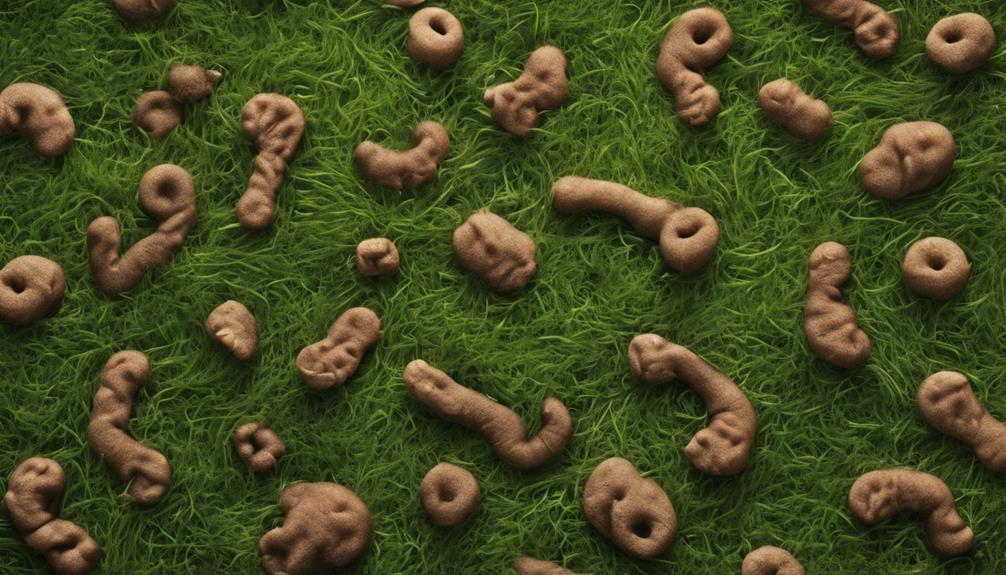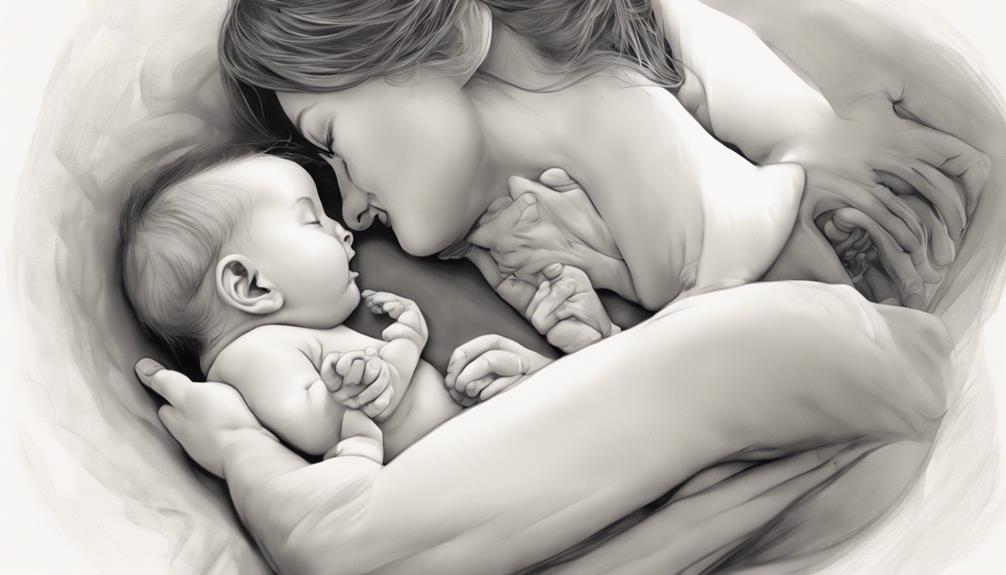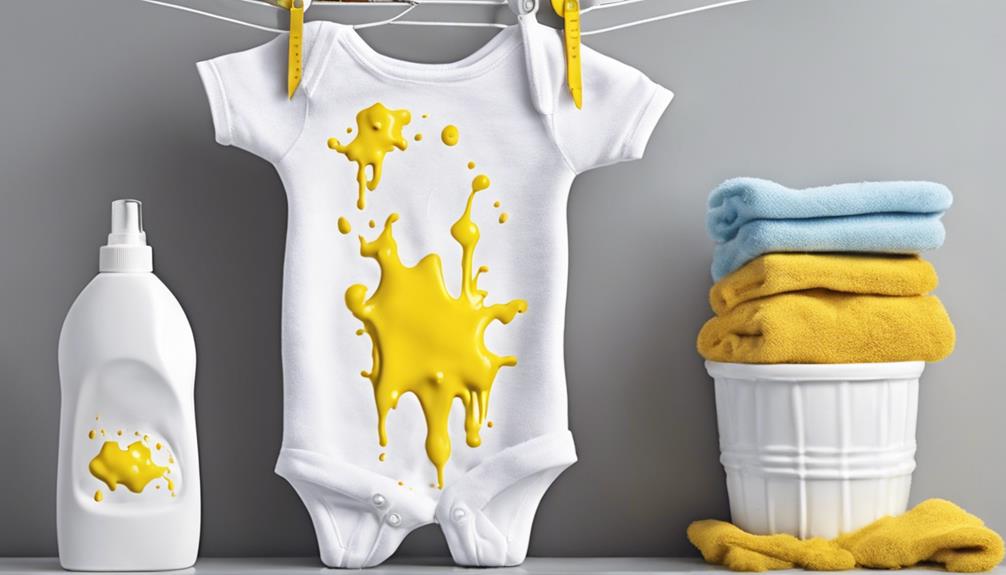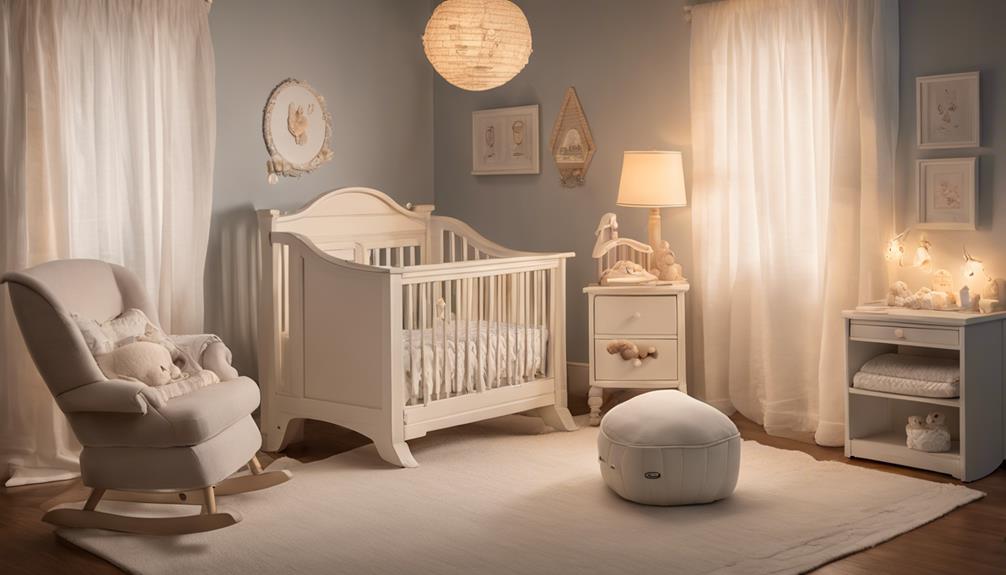Ever wondered how often those adorable newborn puppies leave little surprises for us to clean up? Well, let's just say, it's a topic that can't be avoided.
Understanding the frequency of a newborn puppy's bowel movements is important for pet owners, ensuring the health and happiness of our furry friends.
So, how often should a newborn puppy poop? Let's unravel this mystery together and discover the secrets to keeping our puppies' digestive systems running smoothly.
Key Takeaways
- Newborn puppies poop multiple times a day, especially after meals.
- Monitoring poop color, consistency, and frequency is crucial for evaluating puppy health.
- Establish a routine for taking your puppy outside after meals to regulate bowel movements.
- Changes in poop color or texture should prompt a call to the vet if concerning.
Typical Frequency of Newborn Puppy Poop
Newborn puppies typically poop several times a day, especially after meals. Puppies under 12 weeks old may poop after each feeding, totaling around 5-6 bowel movements per day. This frequent need to relieve themselves is a vital part of their development and digestion process. As part of potty training, establishing a routine for taking your puppy outside after meals is important to encourage proper elimination habits.
The frequency of pooping in newborn puppies decreases gradually as they grow older. By the time they reach 12 weeks of age, puppies may reduce their pooping frequency to about 4 times a day. Monitoring and tracking your puppy's poop frequency is important for evaluating their health and ensuring they're receiving adequate nutrition.
Changes in frequency, consistency, or color of their poop can be indicators of underlying health issues that may require veterinary attention. By understanding your puppy's typical pooping patterns, you can better care for their overall well-being.
Signs of Healthy Puppy Poop

Observing the color and shape of your puppy's poop can provide valuable insights into their overall health and well-being. When it comes to puppies and their bowel movements, it's crucial to know what signs to look out for to make sure they're healthy and thriving:
- Color: Healthy puppy poop is typically chocolate brown in color, indicating proper digestion and absorption of nutrients.
- Shape: Normal puppy poop should have a log or sausage shape, showing that the digestive system is functioning well.
- Size: The size of puppy poop can vary depending on diet, fiber content, and hydration levels, but consistency is key.
- Changes: It's normal for puppy poop to undergo changes as they grow, but any sudden or concerning alterations should prompt a call to the vet.
Monitoring Newborn Puppy Bowel Movements
Upon welcoming a newborn puppy into your home, it's important to monitor their bowel movements closely to guarantee their health and well-being. Newborn puppies typically poop multiple times a day to eliminate waste, with a healthy puppy pooping after each feeding, which can amount to about 8 times a day. By observing the frequency and consistency of your newborn puppy's bowel movements, you can make certain they're on track health-wise.
It's essential to note any changes in poop color, texture, or frequency, as these could indicate underlying health issues that need veterinary attention. Keeping a log of your puppy's pooping habits enables early detection of any potential problems. Remember, monitoring your newborn puppy's poop frequency is a proactive way to safeguard their well-being and provide them with the care they need during this vital stage of development.
Addressing Constipation in Puppies

When addressing constipation in puppies, it's essential to be aware of common symptoms that may indicate this issue, such as reluctance to eat or drink. Here are some key points to take into account:
- Symptoms: Watch out for signs like moaning, groaning, and a hard, enlarged abdomen in your puppy, as these could be indicators of constipation.
- Monitoring: Keep a close eye on your puppy's bowel movements. Straining around a rigid abdomen is a clear sign that your puppy might be constipated.
- Signs of Discomfort: Puppies experiencing constipation may exhibit signs of discomfort and bloating, so observing their behavior is important.
- Early Detection: Regularly monitoring your puppy's poop frequency and consistency is essential. Detecting constipation early can help in addressing the issue promptly and preventing further complications.
Being attentive to these symptoms and monitoring your puppy's bathroom habits can aid in identifying and addressing constipation in puppies effectively.
Tips for Encouraging Puppy Pooping
To effectively encourage regular bowel movements in your puppy, it is important to establish a consistent routine around meal times and take them outside to designated potty spots after eating. By following these simple tips, you can help your puppy develop good potty habits and minimize accidents indoors.
Here are some practical tips for encouraging your puppy to poop outside:
| Tip | Description |
|---|---|
| Establish a routine | Create a schedule for feeding and potty breaks to help regulate your puppy's bowel movements. |
| Use positive reinforcement | Reward your puppy with treats or praise when they poop outside to reinforce good behavior. |
| Monitor for signs | Watch for cues like sniffing, circling, or restlessness, which may indicate your puppy needs to go. |
| Be patient and consistent | Developing potty habits takes time, so be patient and stick to your routine for best results. |
Consistency and positive reinforcement are key when it comes to encouraging your puppy to poop outside. Remember to be patient and understanding as your puppy learns this important behavior.
Frequently Asked Questions
How Often Should a Newborn Puppy Poop?
We have observed newborn puppies typically poop several times daily. Their bowel movements often follow meals, occurring about 30 minutes post-eating. The first excretion, called meconium, is dark. Healthy stool is light brown or dark yellow, changing as they shift to solids.
How Often Do You Need to Clean a Newborn Puppy?
We clean newborn puppies after every bowel movement to maintain hygiene, prevent skin issues, and monitor their health. Failing to clean promptly can lead to discomfort. Regular cleaning keeps them comfortable and helps us care for them better.
What Is the Most Critical Time for Newborn Puppies?
The most critical time for newborn puppies is during the first few weeks of life. They heavily rely on their mother for care and nutrition. Monitoring their health and development is essential for their well-being.
How Often Should I Take My Puppy to Poop?
We take our puppy to poop shortly after each meal to establish a routine. Monitoring behavior for signs of needing to go potty like sniffing helps. Consistency in designated potty spots after meals aids in effective training.
Conclusion
To sum up, as responsible pet owners, we must remember that while dealing with puppy poop may not be the most glamorous aspect of pet ownership, it's a vital indicator of our furry friends' health.
So, the next time you find yourself knee-deep in puppy poop, remember that it's all part of the joy and adventure of caring for these adorable little creatures.
Happy pooping, everyone!










